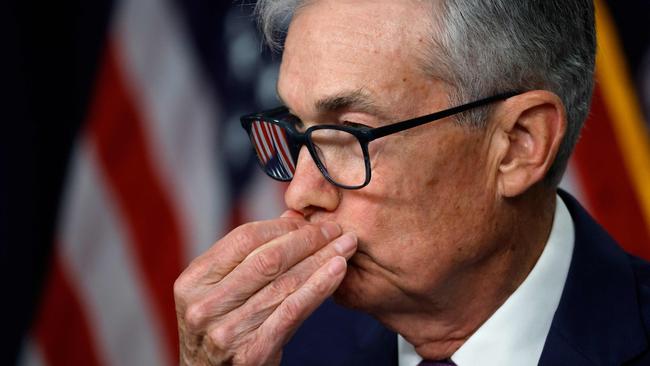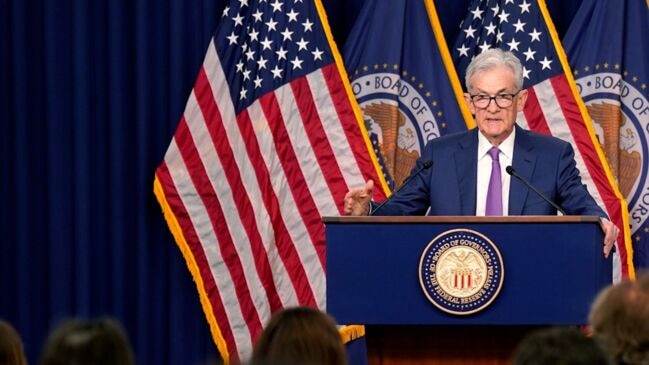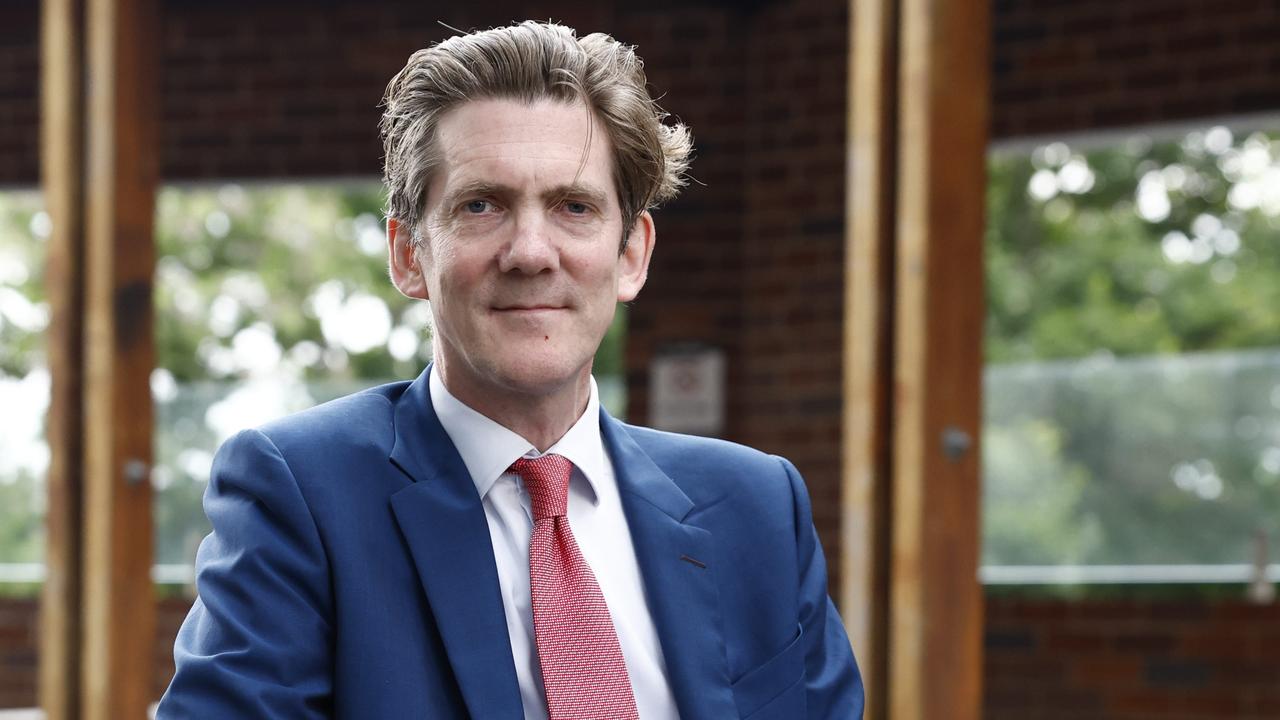Federal Reserve risks repeating its mistakes on inflation
Financial markets have been patient about sticky inflation, pressure on bond yields and stretched sharemarket valuations, but for how long?

Federal Reserve chair Jerome Powell says the US central bank can be “patient” on inflation despite a “lack of further progress” toward the 2 per cent target in recent months.
Financial markets have also been fairly patient about sticky inflation and upward pressure on bond yields, with stock market valuations remaining stretched. But for how long?
The 10-year US Treasury bond yield has soared above 4.6 per cent from about 3.8 per cent at the end of 2023 and the policy-sensitive two-year yield has exceeded 5 per cent past month. The US stock market remains near record highs after its worst month since October.
April data on US employment on Friday and consumer and producer price data next week have the potential to test the market’s patience. The assumption is that economic growth and inflation will continue to cool in response to restrictive monetary policy.
However, there are some question marks about how restrictive monetary policy needs to be amid expansionary fiscal policy in the US.

To some extent the Fed will stay patient as long as the market remains so. But if the stock market is buoyant and the US bond yield curve keeps rising and re-steepens in response to sticky inflation and expectations the Fed won’t increase then it will have to act at some point.
“With the political economists dominating the Federal Reserve these days, the anti-inflation hawks have basically been thrown to the wayside,” Mizuho America’s chief US economist, Steve Ricchiuto, said.
“They have an objective of maximising social welfare by maximising employment.”
So far the market is giving the Fed the benefit of doubt and allowing it to maximise jobs growth.
“Given where the US inflation numbers are, given where the growth numbers are, given what the Fed just did yesterday after the market was believing that maybe they could take a hawkish tilt, and they did not take a hawkish tilt – all should suggest that nominal long-term rates should be rising because inflation risk premiums are rising,” Ricchiuto said.
The US 10-year bond yield fell 5 basis points to 4.63 per cent after the FOMC statement and Powell’s press conference, and slipped to 4.61 per cent in Tokyo trading.
The S&P 500 rose 1.2 per cent intraday after an essentially dovish press conference from Powell.
The US stocks benchmark gave up that rise after Powell expressed less optimism about inflation coming down, but S&P 500 futures pointed to a resumption of strength in Thursday’s US session.

Ricchiuto said the reason long-term bond yields hadn’t risen further since the Fed meeting was because the market remains caught up in the low-inflation hubris of the past decade.
“This is an environment in which people still believe, as does the Fed, that the ‘new-normal’ period after the global financial crisis is the normal,” he said. “Our take is that is the anomaly.
“Unfortunately we gave it a nice title, ‘new normal’, and it lasted long enough that we brought up a whole group of people who have only really experienced that period of history.”
He also said most of the analytic algorithms that run the economic models are based on post-1990 business cycles.
“Each of those cycles had a credit problem. This business cycle has no credit problem and therefore this business cycle is unlike anything they have ever witnessed.”
In his view the Fed risked a repeat of the same mistakes it made in the late ’60s – which led to the inflation problems of the ’70s that weren’t brought under control until well into the ’80s.
If the US economy can handle these levels of interest rates in the context of highly stimulatory fiscal policy and strong immigration, Powell may have to eat his words on further rate rises.
The US federal deficit in 2023 was $US1.7 trillion – equal to 6.3 per cent of gross domestic product.
Whether Joe Biden or Donald Trump wins the November election, Ricchiuto thinks they will stay stimulatory.
“The Fed seems to believe in their summary of economic projections, that the long-term average Fed funds rate is 2.6 per cent, which means with a 5.25 to 5.5 per cent Fed funds rate they’re somewhat around 300 basis points restrictive,” Ricchiuto said.
The problem is he thinks the actual level of the neutral Fed funds rate is 4 per cent.
“So maybe they’re 100 basis points restrictive, but since they keep on promising to cut rates, the forward structure of rates means they’re even less than 100 basis points restrictive,” he said.
“On top of that, the Treasury has just announced they’re going to borrow a trillion dollars between April and September, which means there’s still massive fiscal policy stimulus.
“So the US economy is resilient, monetary policy is not very restrictive, fiscal policy is accommodative, and you have a tight labour market, because this Fed wants to keep a tight labour market and maximise social welfare and their interpretation of social welfare.”
Ricchiuto recommended that investors watch the US dollar very closely from here.
“The weaker the dollar becomes in this environment, the less the benefit the US economy receives from a world of global excess supply of tradeable goods, because we then stop importing global deflationary pressures,” he said.
“If you take a cyclical inflation story, which is dominated by services, and you stop having a drag on inflation from global goods deflation, you wind up with a stickier and higher level of inflation than the markets have clearly priced.”
Powell said the Fed continued to be “highly attentive to inflation risks.” Perhaps it would be best to deliver more medicine now and ahead off what could be a very volatile run into the November elections.



